 W
WLorenzo María Alier Cassi (1878–1942) was a Spanish Catalan lawyer and politician. In jurisprudence he is known as author and co-author of few encyclopedic works and as dean of the Barcelona Colegio de Abogados in 1939-1942. In politics he remained a Carlist throughout all his life. His career climaxed twice; in 1907-1910 he served one term in the lower chamber of the Cortes, and in 1934-1936 he was leader of the regional Catalan branch of the Carlist organization, Comunión Tradicionalista.
 W
WAmadeu Altafaj i Tardio is a journalist. He has been the Permanent Delegate of the Catalan Government to the European Union as well as delegate of the Catalan government in Brussels since 2015. He is also an alternate member of the European Alliance group at the European Committee of the Regions.
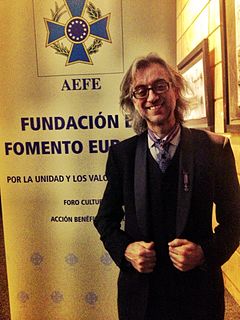 W
WVictor Manuel Amela Bonilla, better known as Víctor Amela is a Spanish writer and journalist present in several media. It is one of the co-creators of the section La contra at La Vanguardia, where he has published more than 1,800 interviews in 15 years.
 W
WAnna Ballbona i Puig is a Catalan journalist, writer and literary critic. She usually collaborates on media such as El PuntAvui, El 9 Nou, El 9 Esportiu i Núvol. She studied Journalism, Literary theory and Comparative literature. In 2008 she was awarded the Premi Amadeu Oller for her first book of poems, La mare que et renyava era un robot. In 2016 she was one of the first writers to use the Faber Residency.
 W
WAntonio Baños Boncompain is a Spanish Catalan musician, journalist and writer. In the Catalan parliamentary election of 2015 he led Popular Unity Candidacy - Constituent Call, a pro-independence left-wing electoral list until he resigned in 2016.
 W
WJoan Doménec Bardina Castarà (1877-1950) was a Spanish-Chilean theorist of education, acknowledged for his innovative approach to pedagogy and for his contribution to renewal of the Catalan schooling system. In Chile he is known also as a scholar in law; in Spain, and especially in Catalonia, he is recognized as a member of the Catalanist movement. Active in Carlism during his youth, he is considered a typical case of a transitional political identity, moving from Carlism to peripheral nationalism. Increasingly concerned with social issues, by the end of his life he sympathized with Francoism and Nazism; he also focused more on his extended family and became increasingly religious. His manuals, published anonymously and related mostly to health, hygiene and cuisine, were fairly popular in Spain in the 1920s and 1930s.
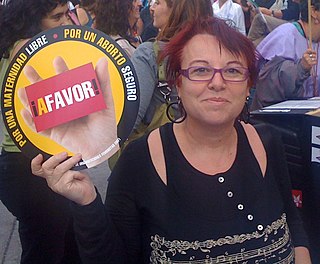 W
WMontserrat Boix Piqué is a Spanish journalist, considered among the most influential women in her country. In early 2000, she created and developed the concepts of social cyberfeminism, and a year later those of feminist hacktivism. Another of her main areas of work is gender violence and communication. She has also stood out as a defender of the right to communication and citizenship rights for women. Since 1986, she has been a journalist for the Information Services of Televisión Española (TVE), in the international section.
 W
WJordi Borràs i Abelló is a Catalan illustrator and photojournalist.
 W
WAlfred Bosch i Pascual is a Catalan academic, journalist, author, politician and a former Minister of Foreign Action, Institutional Relations and Transparency of Catalonia. He was previously a member of the Congress of Deputies of Spain and a member of Barcelona City Council.
 W
WXavier Bosch i Sancho, publicly known as Xavier Bosch is a Catalan writer and journalist.
 W
WRosa Maria Calaf Solé is a veteran Spanish journalist, reporter, news anchor and former correspondent of Televisión Española. She was a TVE correspondent from 1972 until her retirement in 2008. She was also a director of programming at TV3 in 1983. She has received numerous prizes for her work.
 W
WMiquel Calçada Olivella is a Catalan communicating entrepreneur.
 W
WJoan Carreras i Goicoechea is a Spanish journalist, screenwriter and writers in Catalan language.
 W
WFernando Cos-Gayón was a Spanish journalist and politician.
 W
WJosep Maria Espinàs i Massip is a Catalan language writer, journalist and publisher known for his novels, travel writing and newspaper articles.
 W
WCristina Fernández Cubas is a Spanish writer and journalist. She has been described as "one of the most important writers who have begun to publish since the end of the Franco dictatorship" and has been credited with inaugurating "a renaissance in the short story genre in Spain."
 W
WRamon Barnils i Folguera was a Catalan journalist and translator. He worked for several media such as Tele/eXpres, El Noticiero Universal, Agència EFE, El Temps, and La Vanguardia. He helped publish the satirical magazine El be negre amb potes rosses. He also helped publish Ajoblanco, Solidaridad Obrera and participated in Catalunya Ràdio from the day of its foundation.
 W
WAlbert Forns i Canal is a Catalan journalist, writer and poet. Specialised in digital journalism, has worked in cultural institutions like the Centre of Contemporary Culture of Barcelona. Forns stands out for having won the Documenta Prize of narrative with his first novel Albert Serra, where the author questions some appearances of the contemporary art mixing fiction, journalism and essay, and where also appear other Catalan artists out like Miquel Barceló or Salvador Dalí, and other writers like Enrique Vila-Matas The autumn of 2013 Forns received a scholarship from the Institut Ramon Llull to stay at a writers' residence in the State of New York, to prepare his second novel, Jambalaia, rewarded with First Anagrama Prize for Novels in Catalan language. In 2020 he won the Sant Joan Award for his forthcoming novel Abans de les cinc som a casa.
 W
WCarles Francino Murgades is a Spanish journalist. He started his career in Cadena SER Tarragona. In 1979 he got his first job at COPE Reus as a sports editor. Later, he joined the Tarragona studio of the COPE, which he left in 1987.
 W
WPatrícia Gabancho Ghielmetti was an Argentine-born Spanish author and journalist, writing in Catalan. She primarily focused her writings on culture, history, politics and urbanism, especially in regards to Barcelona and Catalan culture. She was an active member in the Catalan movement and a member of La Plataforma per la Llengua. In 2012, she was awarded the Prudenci Bertrana Prize for her novel La néta d'Adam.
 W
WSusanna Griso Raventós is a Spanish journalist and television presenter.
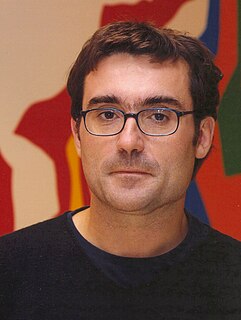 W
WJulià Guillamon is a Catalan writer and literary critic. He was born in Barcelona in 1962.
 W
WDavid Guzman is a cultural journalist specialising in literature and music.
 W
WJesús María José Dalmacio Iglesias García (1879–1933) was a Spanish Carlist politician, active almost exclusively in Catalonia. His career climaxed during one term in the Congress of Deputies (1910–1914) and one term in the Senate (1918–1919). He did not manage to build his personal following; in historiography he is considered a unique case of a right-wing revolutionary who strove to launch a Christian, violent, urban, working class, anti-establishment movement. The bid ultimately failed and in the 1920s Iglesias withdrew from active politics.
 W
WLola (Dolores) Iturbe was a prominent Spanish anarcho-syndicalist, trade unionist, activist, and journalist during the Second Spanish Republic, and a member of the French Resistance during the Battle of France. Working as a maid since childhood, she was self-taught. Iturbe was a member of the Confederación Nacional del Trabajo (CNT). In 1921 she was joined by the anarchist Juan Manuel Molina. She was one of the founders of the anarcho-feminist movement, Mujeres Libres and of the Comité de Milicias Antifascistas during the Spanish Civil War. She chronicled the war for Tierra y Libertad from the Aragón front. At the end of the conflict, she was exiled to France with her companion, Juan Manuel Molina Mateo, or "Juanel", a former secretary-general of the Federación Anarquista Ibérica. Together, they formed part of the French Resistance.
 W
WMiguel Junyent Rovira (1871-1936) was a Spanish Catalan publisher and politician. He is best known as director of El Correo Catalán, the newspaper he periodically owned and managed between 1903 and 1933. As a politician he was active within Carlism; he remained the regional Catalan party leader in 1915-1916 and in 1919–1933. He twice served in the Cortes, in 1907-1910 as member of the Congress of Deputies and in 1918-1919 as member of the Senate. He is counted among moderate Carlists, who favored alliance with conservative Catalanists and opposed the violent faction within his party.
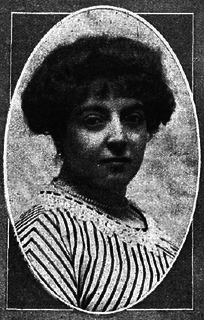 W
WCarme Karr i Alfonsetti was a Spanish Catalan feminist, journalist, writer, musicologist and song-composer.
 W
WPedro Llosas y Badía (1870–1955) was a Spanish right-wing politician. Active in Catalonia, he was first associated with the Carlists and then with the Primo de Rivera regime. He was the longest-serving Carlist deputy from Catalonia during the Restauración but is known mostly as the civil governor of La Coruña and Baleares provinces during the dictatorship.
 W
WAna María Martínez Sagi was a Catalan poet, trade unionist, journalist, feminist and athlete of Republican Spain.
 W
WMarcel Mauri de los Rios is a journalist and historian who is currently the vice president and spokesman of Òmnium Cultural.
 W
WMontserrat Minobis i Puntonet was a Spanish feminist journalist.
 W
WEmpar Moliner Ballesteros is a Spanish writer and journalist. She works for the newspapers El País, Avui, and appears in several TV and radio programs as Minoria Absoluta, El matí de Catalunya Ràdio and Els matins (TV3). In 2000, she received the Josep Pla Award.
 W
WDolors Monserdà i Vidal was a Spanish writer, poet, storyteller, playwright, essayist, and columnist of Catalan descent. She was the sister of the painter Enric Monserdá i Vidal (1850-1926), and her daughter was married to the modernist architect, Josep Puig i Cadafalch.
 W
WJoan Montseny (1864–1942), who also wrote under the pseudonym Federico Urales, was an anarchist activist and journalist in Catalonia.
 W
WJoaquim Monzó i Gómez, also known as Quim Monzó, is a contemporary Spanish writer of novels, short stories and discursive prose, mostly in Catalan. In the early 1970s, Monzó reported from Vietnam, Cambodia, Northern Ireland and East Africa for the Barcelona newspaper Tele/eXpres. He was one of the members of the Catalan literary collective, Ofèlia Dracs. He lives in Barcelona and publishes regularly in La Vanguardia.
 W
WAnna Murià i Romaní was a Spanish narrator, translator, literary critic, and journalist of Catalan descent who wrote short stories, novels, children's literature, and essays. A feminist activist, Murià i Romaní served as secretary of the Institució de les Lletres Catalanes, was a founding member of the Grup Sindical d'Escriptors Catalans, and was an Honorary Member of the Associació d'Escriptors en Llengua Catalana.
 W
WEugeni d'Ors i Rovira was a Spanish writer, essayist, journalist, philosopher and art critic. He wrote in both Catalan and Spanish, sometimes under the pseudonym of Xènius.
 W
WSergi Pàmies is a Spanish writer, translator, journalist and television and radio presenter. He is the son of the writer Teresa Pàmies and the former general secretary of the Unified Socialist Party of Catalonia, Gregorio López Raimundo. In his works he employs humor and parody mixing them with themes of failure and desperation. He translated works by Guillaume Apollinaire, Jean-Philippe Toussaint, Agota Kristof, Daniel Pennac and Amélie Nothomb. He received several awards for his literary works.
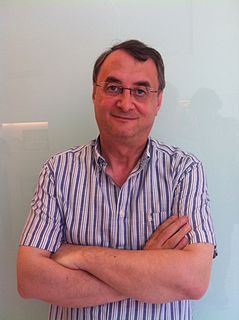 W
WVicent Partal is a spanish journalist and director of VilaWeb. He has also worked in El Temps, Diari de Barcelona, TVE, Catalunya Ràdio, El Punt, and La Vanguardia, among others. He is considered an Internet pioneer.
 W
WJosep Pla i Casadevall was a Spanish journalist and a popular author. As a journalist he worked in France, Italy, England, Germany and Russia, from where he wrote political and cultural chronicles in Catalan and Spanish.
 W
WIrene Polo Roig was a Spanish journalist, publicist, theater representative, and translator. She was one of the first women journalists in the Catalan press. Polo, who favored labor rights, participated in the creation of "l'Agrupació Professional de Periodistes". Because of the Spanish Civil War, she lived the last three years of her life in exile in Buenos Aires, where she committed suicide at the age of 32.
 W
WCarles Puigdemont i Casamajó is a Catalan pro-independence politician and journalist. Since 2019 he has served as a Member of the European Parliament (MEP).
 W
WJoan de Sagarra i Devesa is a Catalan journalist and writer, son of the poet Josep Maria de Sagarra.
 W
WRobert Saladrigas Riera was a Catalan writer, journalist and literary critic, renowned for his articles on foreign literature published in CULTURA/S, the literary supplement of La Vanguardia newspaper. His literary work has been translated into Spanish, Portuguese and Romanian.
 W
WJaume Sanllorente is a writer, journalist and activist for Human Rights. He is founder and General Director of the Fundación Sonrisas de Bombay and of the Mumbai Smiles Foundation, both of them non-governmental and non-profit organizations that focus their joint action on a peaceful struggle against poverty among the most underprivileged communities of Mumbai.
 W
Welplural.com is a spanish language news site which has been publishing since 19 September 2005. It defines itself as a combination of information with opinion which tries to offer its readers general interest news.
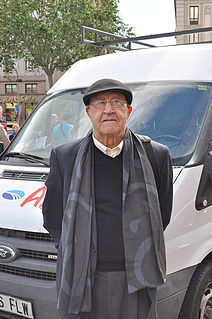 W
WEmili Teixidor i Viladecàs was a Spanish writer, journalist and pedagogue. His most notable works include Ocell de foc and Pa negre, the book that inspired the movie Black Bread.
 W
WMònica Terribas i Sala is a Spanish journalist and professor at the University Pompeu Fabra. Between 2008 and 2012 she was director of Televisió de Catalunya and the following year, councillor delegated and publisher of the Ara newspaper. Since 2 September 2013 she has directed El matí de Catalunya Ràdio.
 W
WMaria Dolores Torres Manzanera known as Maruja Torres is a Spanish writer and journalist. She is a recipient of the Premio Planeta de Novela and the Premio Nadal.
 W
WManuel Vázquez Montalbán was a prolific Spanish writer from Catalonia: journalist, novelist, poet, essayist, anthologue, prologist, humorist, critic and political prisoner as well as a gastronome and a FC Barcelona supporter.
 W
WSamanta Villar Fitó is a Spanish journalist.
 W
WJaume Vives Vives is a Spanish journalist, activist and writer. He directs the digital newspaper El Prisma. He is also one of the promoters of "Tabarnia", an anti-independence construct in Catalonia.
 W
WEugeni Xammar i Puigventós was an international journalist, career diplomat, and polyglot translator who lived most of his life outside of Catalonia as a correspondent in Europe during the stormy, unstable years of the First and Second World Wars.